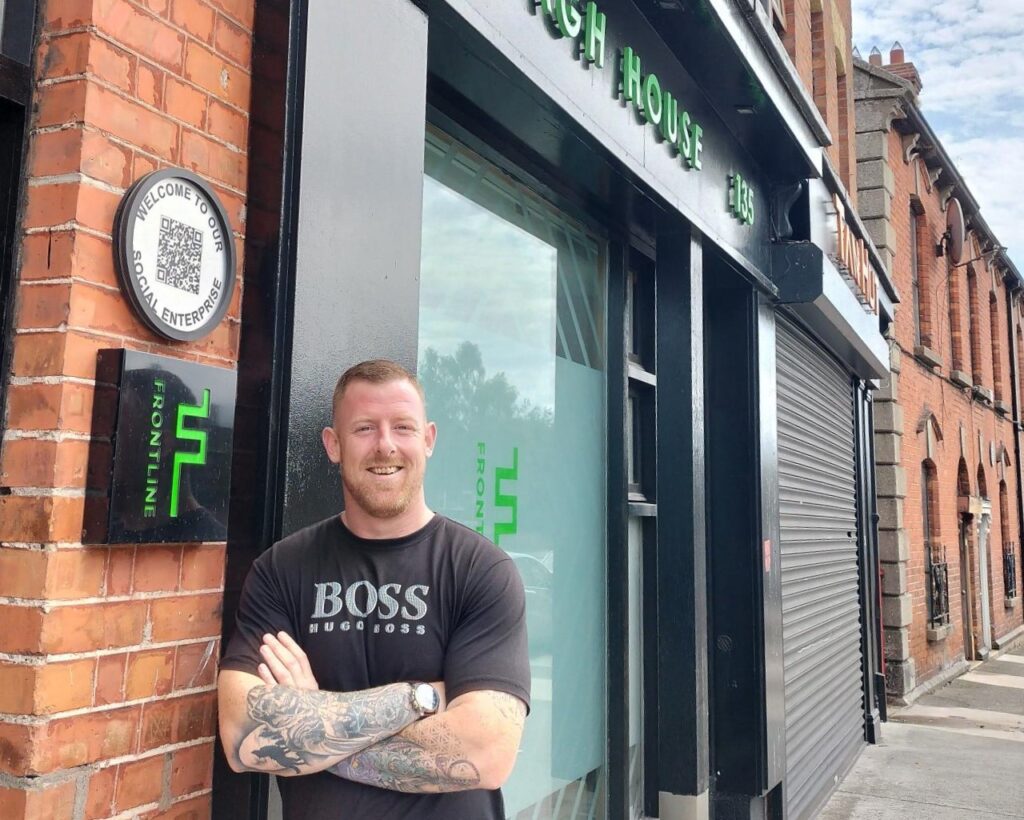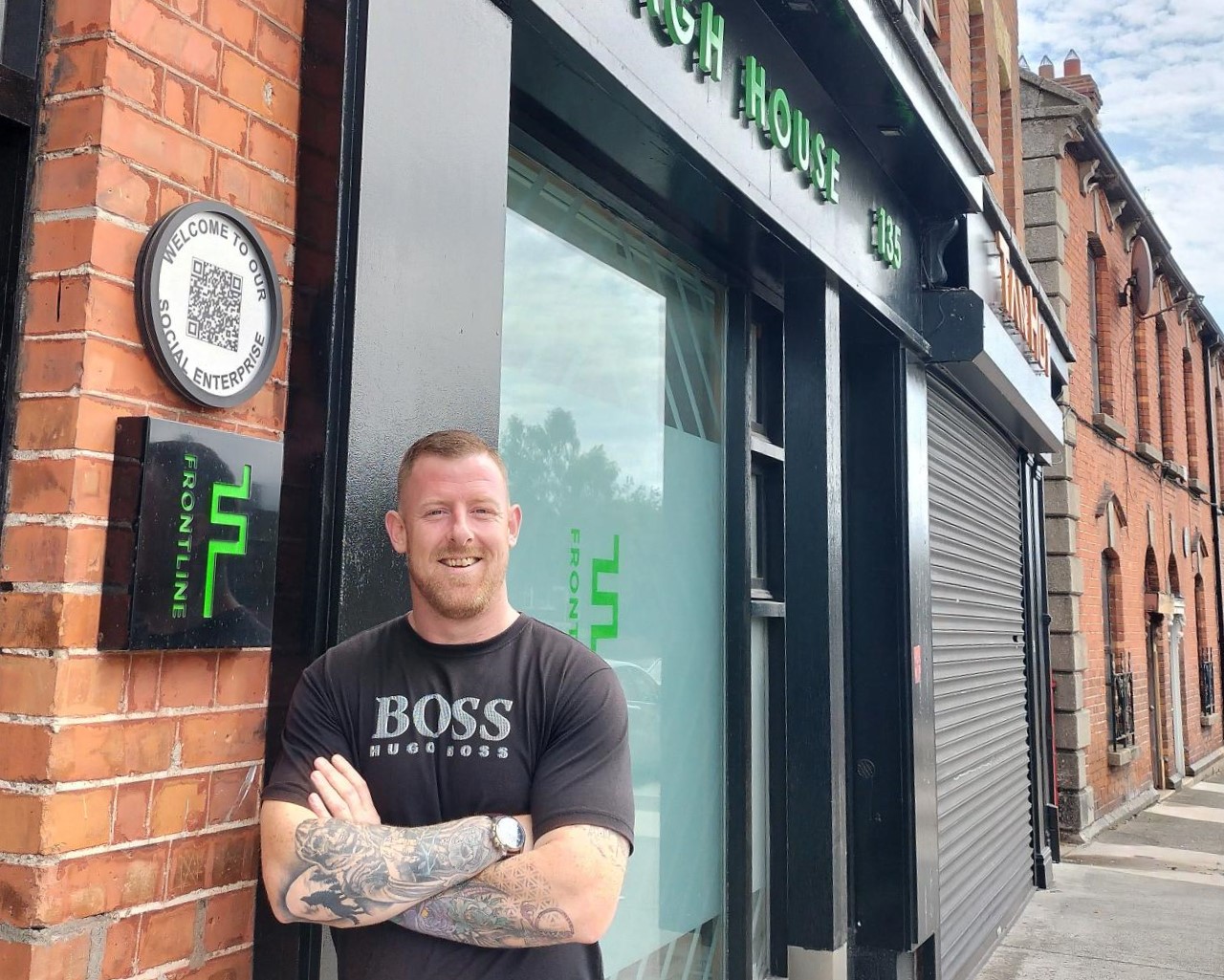
Frontline’s Prison Links Worker, Jason Campbell, shares his own lived experience as a former prisoner on how he made huge changes in his life with the support of in-house services and programmes.
“I’ve studied a lot over the years, and I truly believe there’s nothing I can’t accomplish. However, I found my limitations regarding academia. So, please pardon my grammar in this piece. I would just like to offer my thoughts on a wonderful new initiative that I’m proud to be a part of—the Treatment and Recovery Programme (TARP). TARP is an in-house programme offered to prisoners who are looking to address their substance use. The programme itself is run by MQI and Frontline Make Change is delighted to collaborate with them in offering a weekly session as part of their programme. Reflecting on my own experience in addiction and imprisonment, I would like to share why I’m proud and honoured to be part of the TARP programme and to express how important programmes like this can help change the narrative that leopards can’t change their spots.
LIFE BEHIND A PRISON WALL
“At the age of 37 with no formal education, prospects, or hopes, I had almost resigned myself to the fact that I would never achieve anything in life, and I was destined to spend my life behind a prison wall. From my adolescent years up to adulthood, I had spent in institutions and prisons. I grew up in a home of alcoholism and addiction but did not understand it at the time. So, to escape one madness, I went into another in which I thought I had control, and as a result, I have spent most of my life in prison due to crimes related to drug abuse. I understand my imprisonment was through my actions, and I take full responsibility for them.
“I truly believed when I was released, I would change my life and get a job and a relationship, all those gifts that life has to offer, but unfortunately, it took many years to understand the problem I suffered from (addiction) was stronger than my desires. Unfortunately, it wasn’t something that I could switch off. My hectic lifestyle was caused by several other issues that needed to be addressed, but I had no idea where to start or how to go about it. I had the fortunate opportunity to talk with a drug counsellor, Noel Dowling at Cloverhill Prison, and it was the first time I had ever opened up to someone about my issues. He is one of the many individuals that helped me on my journey to recovery. That marked the start of change for me.
FACING MY FEARS
“I had spent 20 years wandering around the same prison yard and was physically, mentally, and spiritually broken. But there was a change in me from that conversation with Noel. I knew I couldn’t live inside or outside; nevertheless, I had changed. I realised that since I couldn’t live either inside or outside, I just had one chance, and that was to confront my greatest fear—that of society and myself. Engaging in recovery supports, I have turned my whole life around. I have amazing people who helped me on my journey; half of them are current or past colleagues. I have been employed by most of the services I engaged with and am proud to say I have been part of the development and implementation of some successful programmes that are still running today. I have been through three colleges and many levels of training courses that enable me to do what I do today and to be competent in my abilities.
CHANGE IS POSSIBLE
My role today is a Community Prison Links (CPL) worker at Frontline Make Change (a community-based addiction service in Dublin 8, 12 and 1). In this role, I assist both men and women regarding rehabilitation and reintegration following release. This role is a community-based role but works with all prisons nationally. As part of the role, when I receive a referral, I meet with the person whether in prison or in the community and all clients have to have either outstanding or pending charges or are on probation / in prison. I work with clients to put a client-driven care plan in place to support the client in as best as I can to reach their full potential and turn their life around. Many need this level of support to make changes, very much like they need groups within the prison settings to do the same.
TREATMENT AND RECOVERY PROGRAMME
“My greatest achievement to date was to be offered to facilitate the Treatment and Recovery Programme in the medical unit on the Mountjoy campus with my colleague Sabrina O Neill from Frontline Make Change. I am a big believer that recovery and rehabilitation are possible; however, it is best to start inside the prisons so that people are ready and equipped with information and knowledge of addiction and change and what that entails upon release.
“While delivering evidence-based programmes, I feel that someone with lived experience can be an inspiration and a role model and show that recovery is possible and that they can successfully overcome addiction and rebuild their lives.
A BRIGHTER FUTURE IS POSSIBLE
“Witnessing someone who has emerged from similar circumstances can ignite a spark within people, motivating them to pursue their recovery journey and envision a brighter future beyond the confines of prison walls. The Treatment and Recovery Programme is not just a group session; the purpose of it is to offer a continuum of care within prison that continues to support people on their recovery journey upon completion. Many life changes start from something like this but for it to be an on-going success it needs continued support, funding and prioritisation by all people and prisons / staff involved.”





